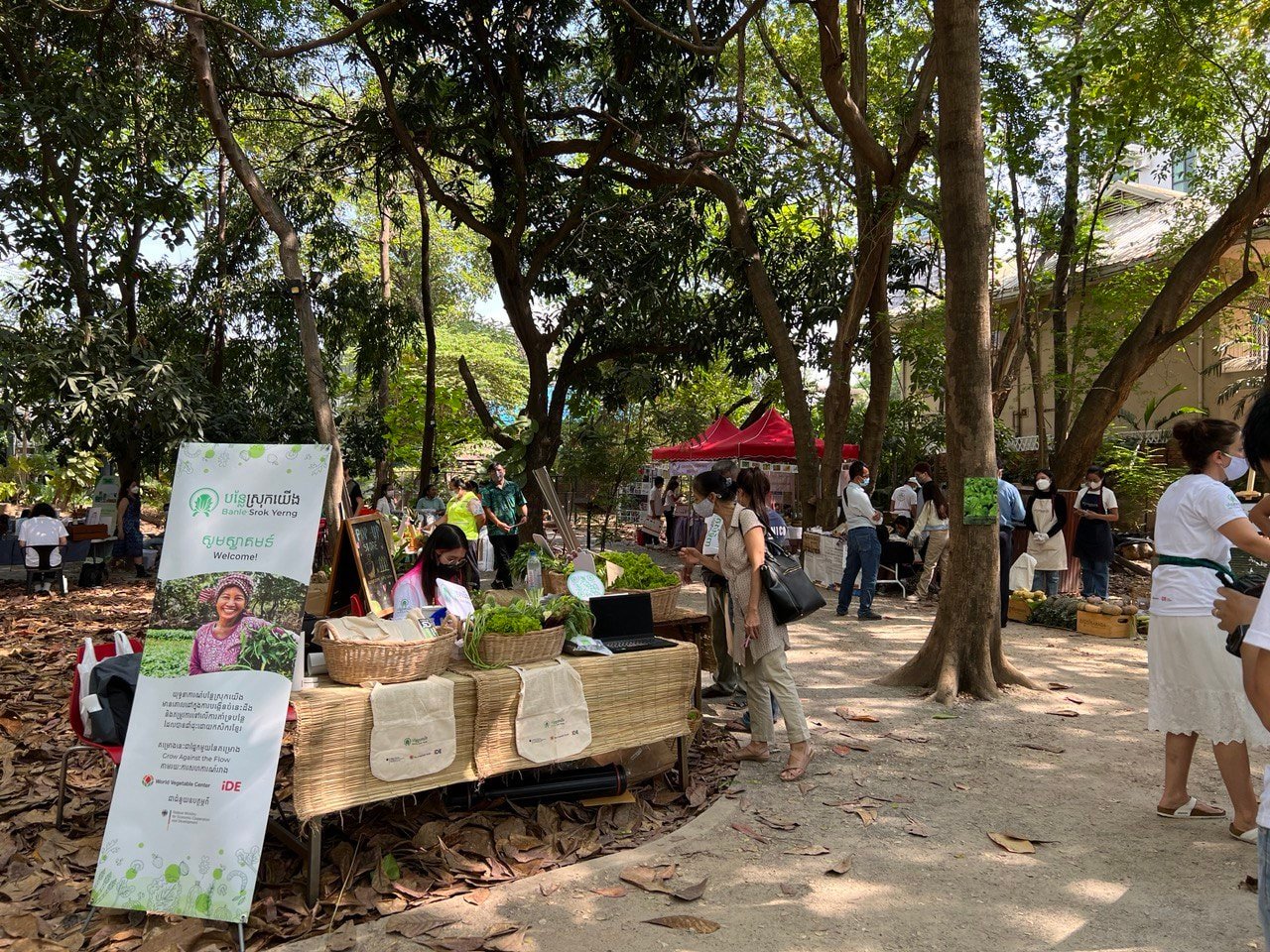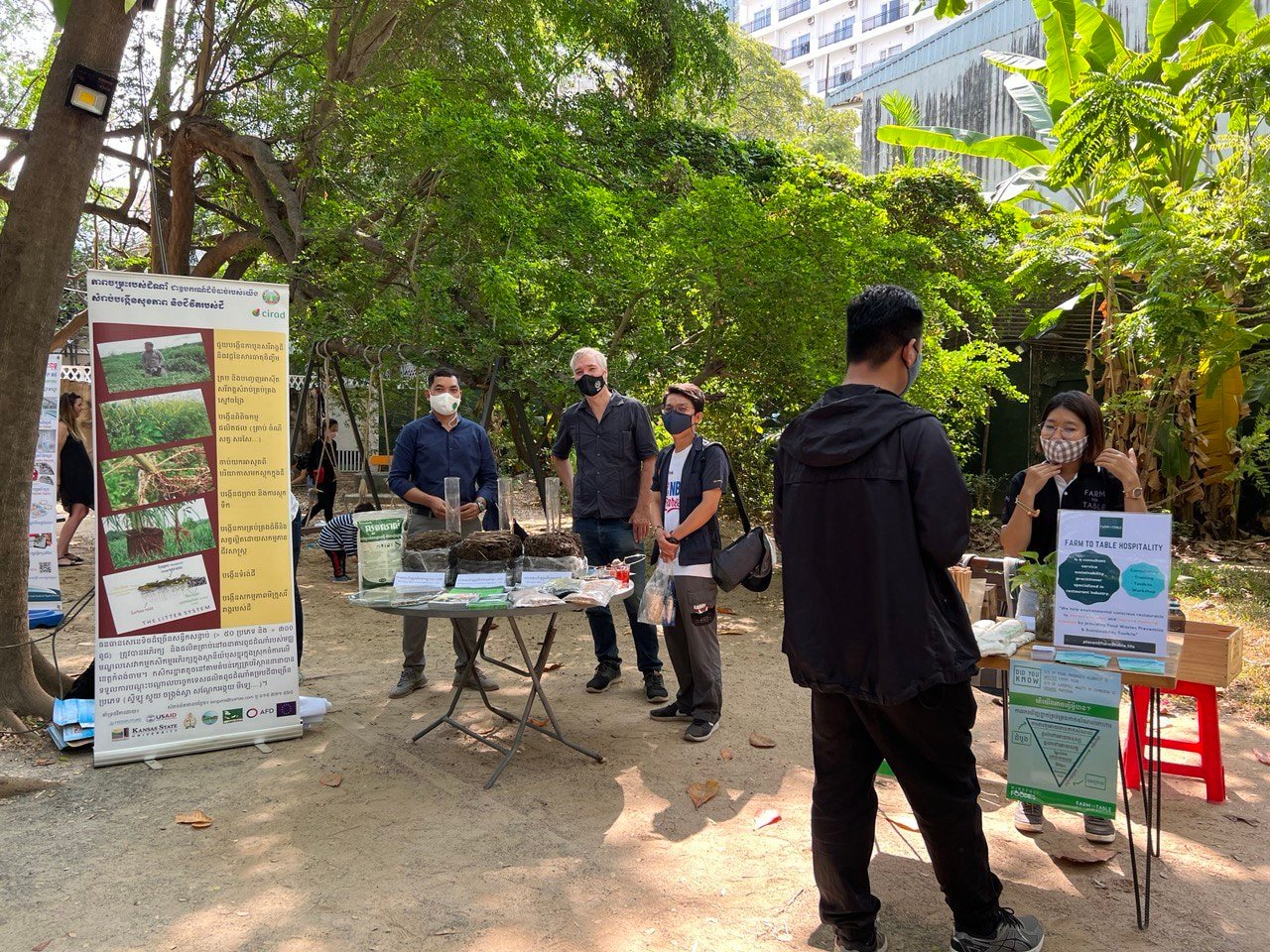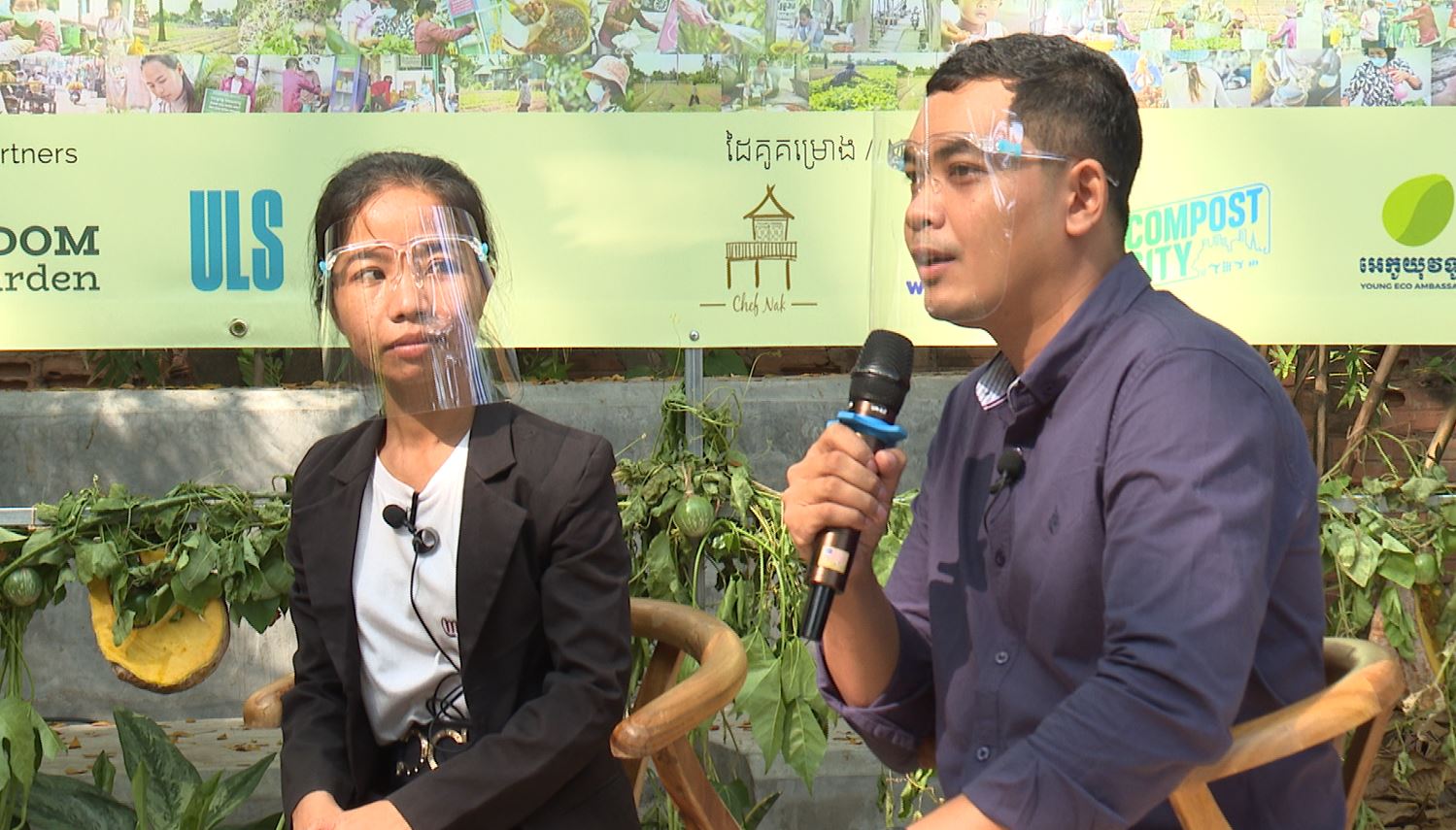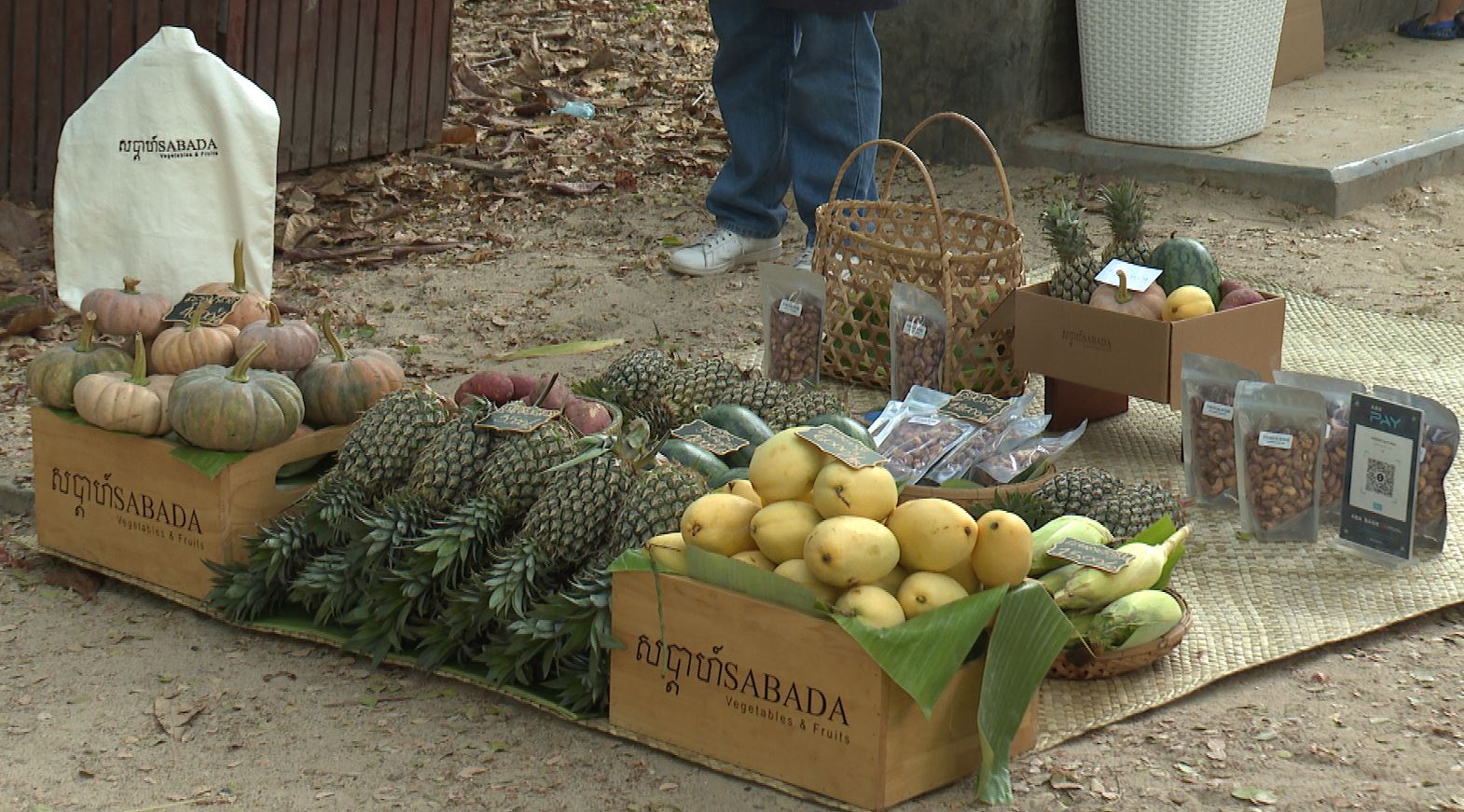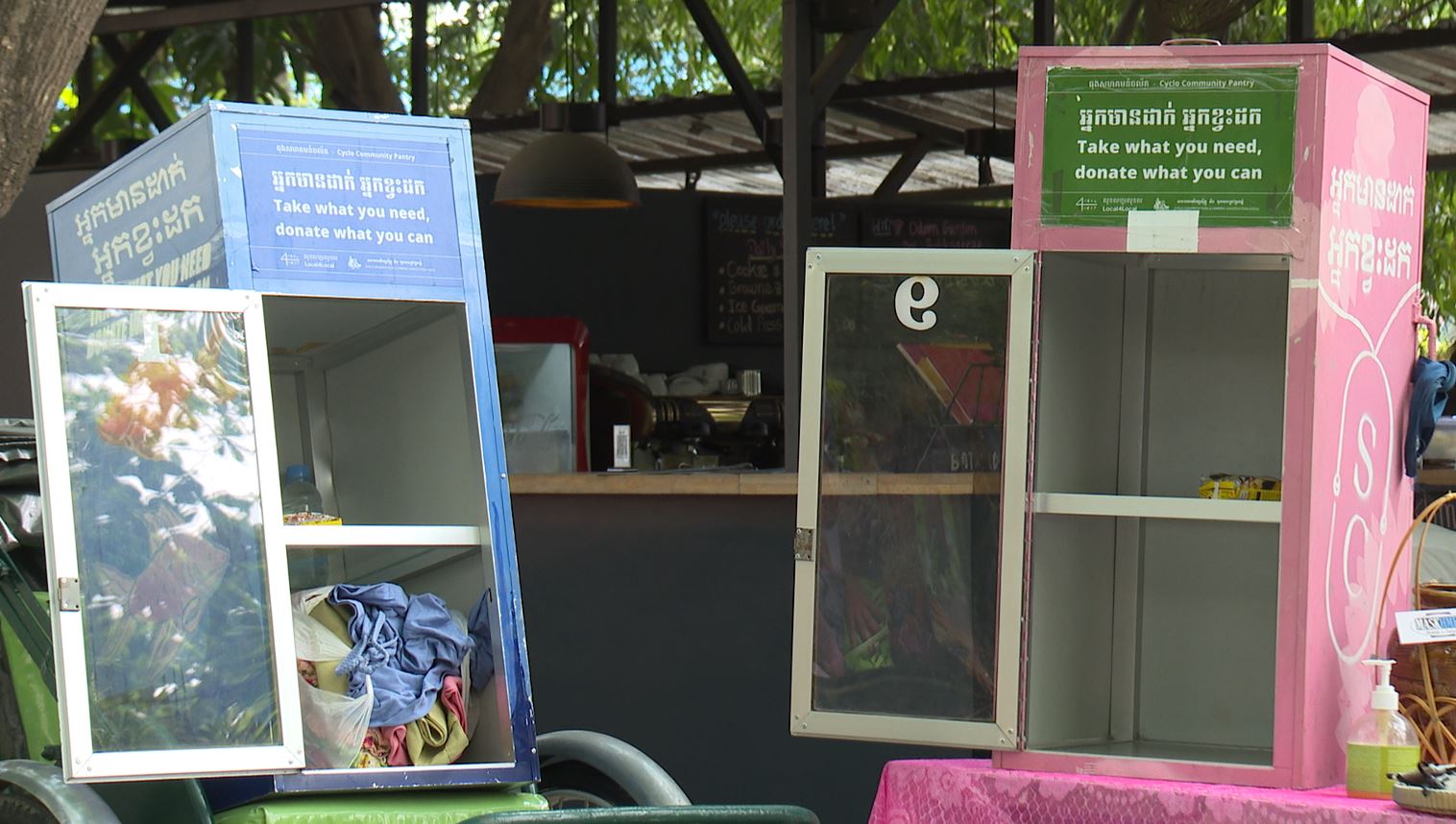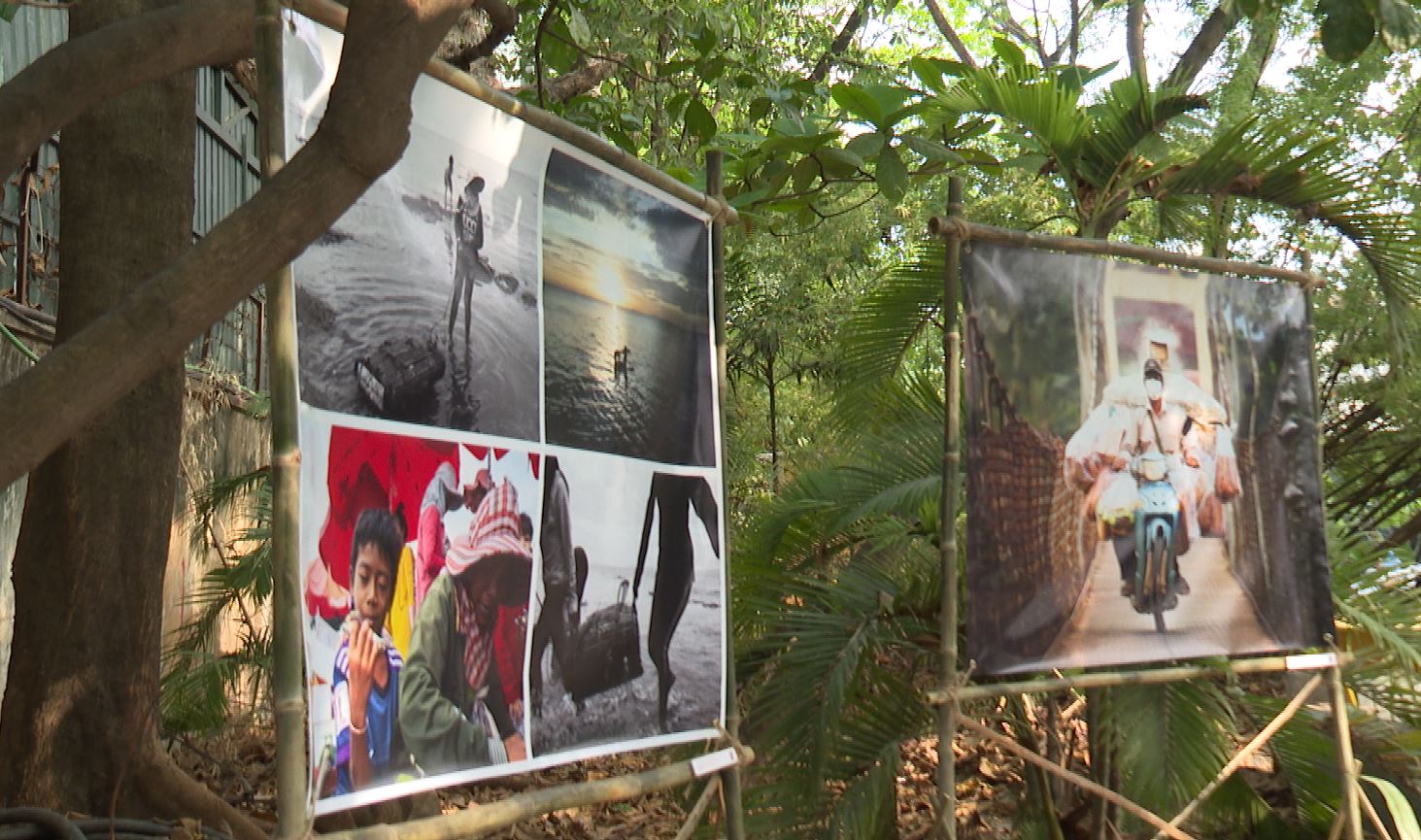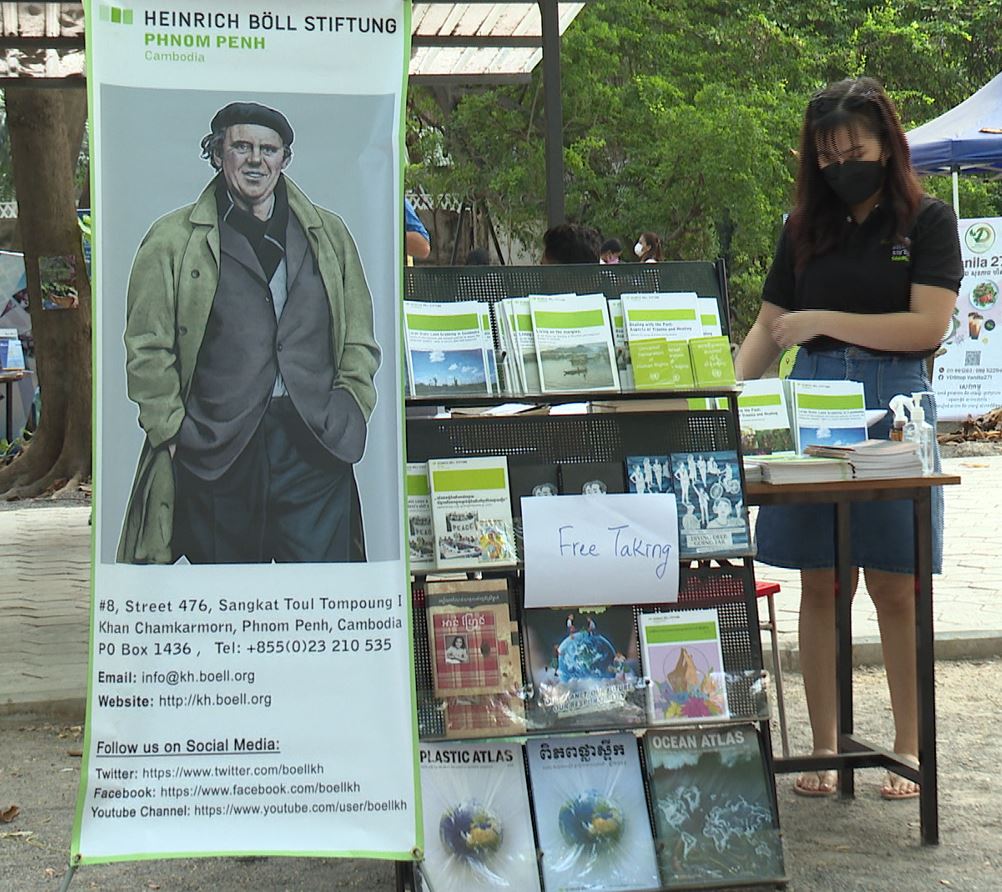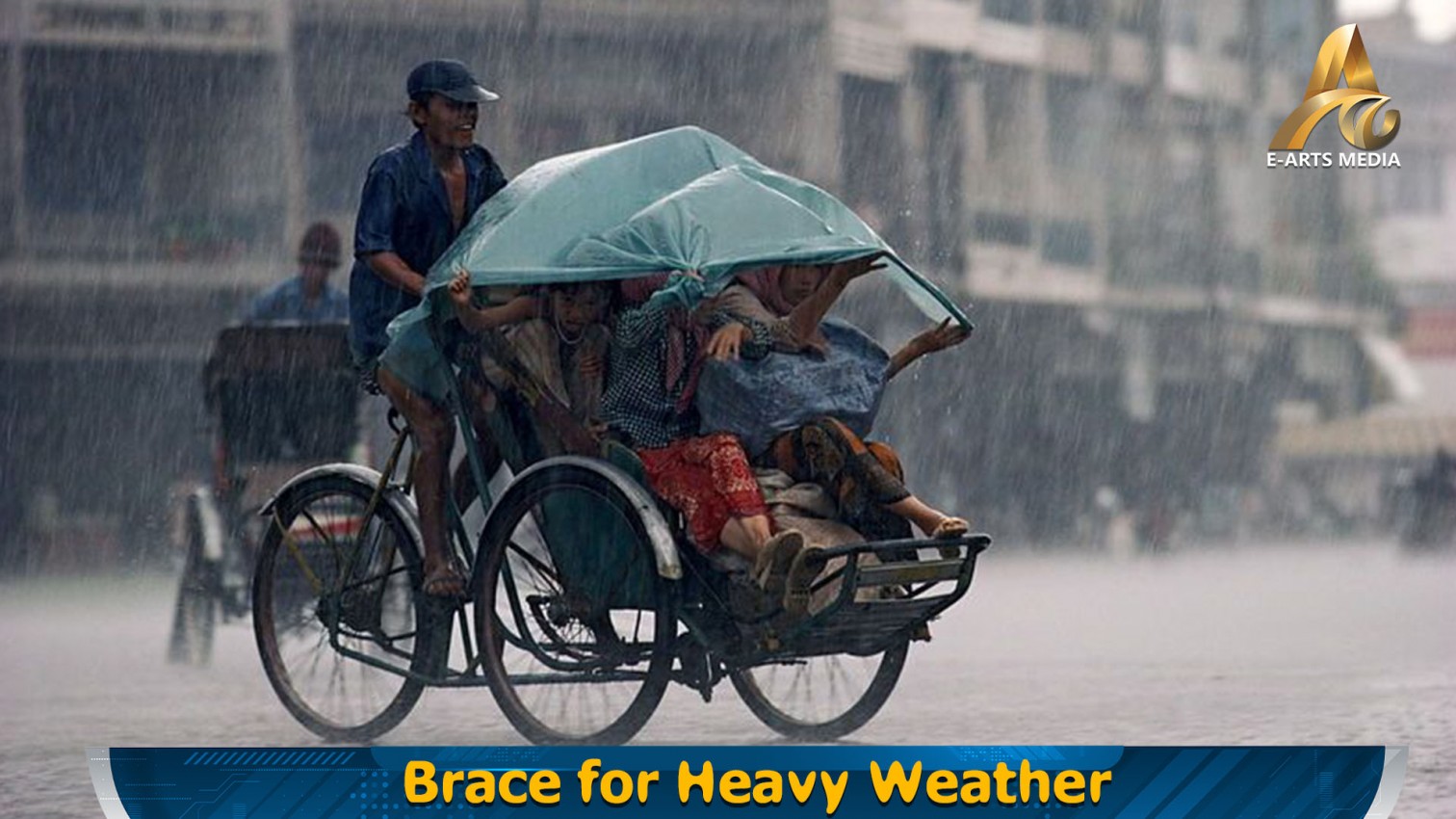PHNOM PENH: “We are what we eat” is usually tossed around when health is involved in the discussion. However, what do people know about the food they eat and how it was produced? MHOPe exhibition, organized by Heinrich Boll Foundation in collaboration with Wapatoa media collective, Compost City, Chef Nak, and Young Eco Ambassadors, aimed to showcase that.
The exhibition was held on February 12th, 2022, and featured photos, illustrations, videos, panel discussions, food fairs, games, art, music, and much more. EAC News attended this event to learn more about food systems and sustainable agriculture in Cambodia.
At the event, the exhibition was abuzz with volunteers and vendors alike setting up their stalls to exhibit organic farming to sustainable practices. There were two panel discussions. The first panel was with Hul Hunsopheary, a co-founder of Ruy Reach; Dy Theavy, a teacher and farmer; and Son Sovanda, a project manager at Smart Agro Sustainable Innovations discussing food production.
Son Sovanda said, “We introduce farmers [technique] to use cover crops and integrated practices that minimize the tilt...reduce their plowing activity to minimize the disturbance on the soil structure...we can make the farming more sustainably by improving the diversity of the farm by introducing more species, not doing monoculture cropping like most of us are doing today.”
Teacher Teavy agreed and added that her farm does switch crops each season on her plot of land and that’s how she is able to keep her crop healthy with minimal chemical pesticides. She has a farm with chickens, ducks, and goats that help her with fertilizer as well as closing the loop on excess vegetables as their feed.
Hunsopheary added that a circular economy is important to food sustainability. That is why her company, Ruy Reach, is growing black soldier flies. It is more effect than other insects in getting rid of food waste. Since black soldier flies only drink water, the larvae compost food waste, a protein source for animals instead of fish meals, and their poop can be fertilizer; thus, Hunsopheary believes this is the circular economy for food sustainability.
The second panel discussion was about consumption and nutrition with Dr. Pol Charithy, the head of nutrition governance in the MUSEFO Project; Neng Sokneang, the CEO of Kokopon; and Soun Leaksmee, the co-founder of Angkor Social Innovation Park. Leaksmee discussed that her generation enjoys convenient delivery food especially during the time of Covid-19.
Dr. Charithy said, “In the short run, we can save [time with convenience], but in the long run we will lose a lot of money [on health.] One of the thing to keep in mind is to eat diversified food and remember that only diversified food can help, can protect and can save in the long run.”
Sokneang added that she noticed a trend of people ordering from her app, Kokopon, start questioning where the food is coming from, who is selling the food, and who takes care of their food. It is her mission to build trust between them and the farmers.
After the panel discussions, the organizers shared delicious Somlor Korko which is a traditional Khmer soup with a variety of vegetables in an array of colors. An exhibition goer, Soem Sreyleak shared her thoughts about the panel that she’s excited to learn new things from the panel. She remembered the Doctor talked about eating at least ten different colors of food. She will evaluate her eating habits and adjust accordingly.
On the side of the exhibition, fourteen photographers contributed, including Pidor Ham, Daniel Eang, Roun Ry, Mean Lux, Chansakun Chea, Ken Bo, Shunsuke Miyatake, Cindy Liu, Raphael Pech, Yann Bigant, Kim Sokvisal, Thomas Cristofoletti, Miguel Jeronimo, and Joaquin Barata. Part of the sales of the photographs will be donated to Local4Local, a donation drive that helps to provide jobs to cyclo drivers to distribute food to street communities affected by Covid-19. Each photographer highlighted a different topic. For Pidor Ham, she highlighted street vendors and what kept them going and give them hope during the pandemic.
Miguel Jeronimo curated this exhibition said, “We feel the need to give visibility to the myriad of workers along the food cycle from pre-production like who gives the seed to the farmers to the fishermen to the people who goes to the countryside to bring vegetables into the city to sell to other markets for consumptions…[and] what to do with our food waste and better ways such as composting where we utilizing how to bring back to the soil to create a more sustainable food system and a proper circular economy.” It is important for MHOPe to bring local farmers and entrepreneurs to the forefront. “Problems can only be solved with local solutions and local people engaged in the discussion,” he said.
One of the vendors who attended the fair is Hong Vann Raksmey. She represented Psar Touch, her Facebook page which sells honey and turmeric.
She wanted to share the recipes that Cambodia has used for a long time, especially for new mothers. She saw how effective it is and saw how many people are trying it now.
Later in the day, Kakada Yi did a live painting session with both hands simultaneously, portraying a message about people’s connection to the land and their surroundings. DJ Pietro and Aaron also dropped some beats.
This exhibition was supported by Angkor Social Innovation Park, Laor Penh Chet printing house, KampumEra, Local4Local, Odom garden, and Urban Living Solutions as exhibition partners. The exhibition is open until March 8, 2022. For more information, check out https://www.facebook.com/mhopecambodia.
